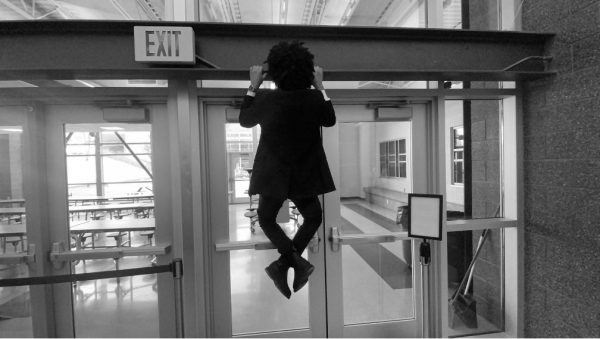Homeroom Yes or No
Park City High School has introduced the idea of homeroom that will take place during the 2018-2019 school year. PCHS students created the idea and presented it to the administration. They wanted to create a safe space for students at school without the stressful academic environment and heavy workload.
Homeroom is designed to be a 30 minute class once a week where students can receive social, academic, and emotional help from a teacher. The class will include a mix of sophomores, juniors, and seniors. Administration hopes students can develop relationships that they couldn’t get from a normal class.
Throughout the year, homeroom will have certain topics the teachers would cover each quarter. Topics could include stress, anxiety, mental health, and abuse.. Then, the teachers would present lessons for each topic so that students have the opportunity to educate themselves through discussions and relieve some of the pressure they experience in their lives.
A typical day in homeroom would consist of discussing a universal topic such as success and failure. The teacher would first introduce the topic and have an interactive discussion with students. Then, the teacher would share a personal story relating to the topic and afterwards there would be a student reflection. Students would be able to participate and share their personal thoughts or they could just sit quietly and listen.
The administration believes that homeroom will benefit students academically and personally.
“If students are emotionally healthy they will be more academically successful and that’s the ultimate goal” explained Mr. Fine, one of the administrators leading the homeroom discussion. Studies have shown that students receive better grades and test scores when they have availability to social and emotional help.
Ms. Suggett, who has organized research and ideas about homeroom with Mr. Fine, has goals for homeroom focused on the student’s growth through reflection.
“We want students to gain the skills needed from building their emotional intelligence that leads to improved emotional health, at all levels.” She said. “For us (the admin team), this Homeroom model is not meant to be an academic intervention. We want to focus on social-emotional learning and individual growth for students through reflective practices on ways to cope with challenges that face us all.”
Though the administration has high hopes for homeroom, students’ and teachers’ reactions are mixed. While some students are in favor, others are opposed for various reasons.
Those in support worry about the connection with their homeroom teacher, a key piece of the program. “I think it will depend on which teacher you get. Some teachers are in support of the homeroom program and some teachers aren’t. If you end up with a teacher who isn’t in support of the program, it will make the lessons that much more uncomfortable,” says Sam Peterson (Junior)
Students Aidin O’Brien (11) and Annie Sheinburg (11) found a possible solution: If students were able to pick their teachers or make a list of the top three, they believe the program could be more successful.
O’Brien explains his worry in more detail: “I would like to select the teachers I could go to because it’s a lot easier to talk to people that you know instead of going to a teacher that doesn’t know you and you don’t know them.”
While the students have their own opinions, teachers are also giving out mixed reviews on Homeroom.
Julie Hooker also worries about connecting with students she doesn’t know. “My concern is that 1 day/week is not enough to build relationships that will promote conversations.”
Other teachers worry they will not be prepared to discuss the topics of the class. “These can be tough issues to discuss, perhaps I’m not ready to facilitate these discussions. How do we know if we are being effective?” says Mr. Mulick.
Though all of these students believe it’ll be beneficial for a homeroom to occur, they worry about the most important part, the teacher-student connection, which is a major indicator if this will truly work.
The program does have doubters. Some students wonder if they will feel comfortable talking about tough issues, especially with peers they don’t know.
Dean Tsandes (11), is one student against against Homeroom.
“I would not support this because I don’t feel comfortable talking about those things with people I don’t know. I also think the school should not force us to talk about these things.”
He also worries this class would have the opposite effect than what would be intended: students might ignore the teacher, just doing their homework or talking with friends instead.
If the class is graded on participation and someone isn’t comfortable with talking about these subjects, so they don’t share and then proceed to fail Homeroom. How is that fair?
There’s a large chance that Homeroom will be in affect next year, if you have a concern or idea about Homeroom, please email Coach Fine or Ms.Sugget as soon as possible.







